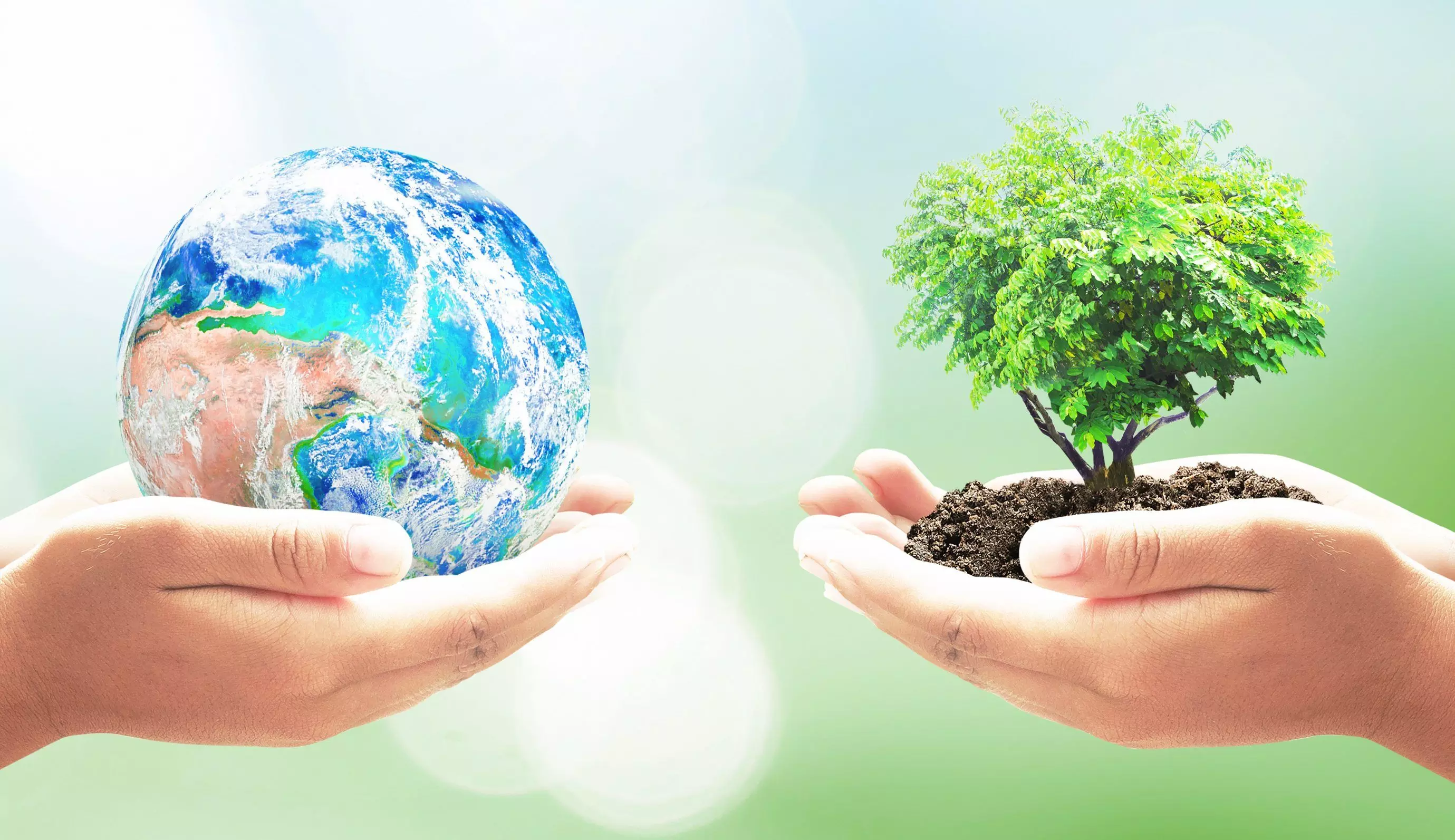Earth Day: Invest to protect
In line with the theme of the Earth Day, 2023, there is need to invest in education and well-being of people to save the planet

Earth Day marks the realisation that the planet needs to be taken care of, instead of taken for granted. The Earth signifies life, growth and co-existence. The history of the Earth, comprising several epochs, dates back to 4,000 billion years ago. Human interference in nature began initially during the agricultural era, and later the industrial era, but in the last 200 years, mankind has caused a significant negative footprint on the environment. It is the Anthropocene Age which marks the change in the environmental conditions because of human activities.
There are unprecedented, insurmountable environmental challenges. Climate change, weather extremes, land degradation, environmental pollution, and the consequent impact of all these on socio-economic life and health of the people is clearly visible. According to the World Economic Forum Report, 2023, out of the ten major risks that the world is facing, six are related to the environment. These include failure in climate change adaptation and mitigation measures, extreme weather events and disasters, natural resource degradation, loss of biodiversity and large-scale environmental damage.
The celebration of Earth Day, 2023, in India becomes all the more significant when we are holding the G 20 Presidency with the main theme of One Earth, One Family and One Future. One Earth refers to the only planet which provides favorable conditions to support life. One family relates to the fact that we live in an interconnected and interrelated world, and the environmental problems know no boundaries. One future explains the urgent need to act together for our common future.
The Earth Day this year coincides with India becoming the most populous country in the world, surpassing China. This indicates that we are a big family with a huge ecological footprint in terms of carbon emissions, waste generation and increasing demand for land and water resources. The IPCC’s Sixth Assessment Report, 2022, has identified population growth as a ‘key hindrance’ to limit global warming to 1.5 degrees Celsius. According to the Ministry of Water Resources, India’s water requirement will increase from 1,100 billion cubic meters per year in 2017 to around 1,200 billion cubic meters in the year 2025, and 1,447 billion cubic meters in 2050. The foodgrain requirement for India’s 1.4 billion people will be about 300 million tonnes in 2025, and we require 1,240 hectares of land every year to dispose of our waste. The demography of the country also tells us that we are socially, economically and culturally diverse. Looking through the lens of changing population dynamics, maintaining a livable planet for all highlights the importance of population stabilisation, equity, inclusion and social justice. Extreme inequality and wealth accumulation limits the ability of populations to protect the environment. People’s participation in environmental sustainability is the outcome of education, awareness, individual and collective action, responsible behaviour, informed choices, partnership and cooperation. Myopic views and cosmetic ‘too little and too late’ changes make no difference. To see that growth and sustainability exist together and not be viewed as tradeoffs, nature-based solutions, technological innovations and mindset of the people can bring about a change.
The theme of the Earth Day, 2023, is Invest in Planet. The investment in terms of time, scale and energy is needed to reboot the Earth’s system. Investment in a huge population correlates with the scale of investment. Population is a human issue and must be at the centre of the development agenda. With 68 per cent of India’s population in the 15-64 years category, and 26 per cent in the 10-24 years group, there is a ray of hope, not only in terms of economic growth through increased workforce participation but also for the planet Earth. Youth across the world are driving climate action and environmental sustainability. Studies have indicated that young people get more anxious about the fears of climate change and pollution, and believe that their future is in danger. The activism of Greta Thunberg has stirred the environmental movement and has inspired millions. Greening the businesses, digital innovations, shift to cleaner fuels, implementing adaptation and mitigation measures, and technology-aided sustainable development are possible in a young country. Women constitute half of the population of our country. Investing in women’s health, education and livelihood is crucial for resource conservation. It is noteworthy that women bear the most severe brunt in cases of disasters, crop failure and harsh weather despite the fact that they are the natural conservationists and protectors of the environment. It is important to invest time and effort towards empowering female agents for environment protection and conservation. Likewise, educating children about the environmental issues, motivating them for a pro-environment attitude and devising appropriate solutions will sensitise them at a young age, and it will be reflected in their behavior in adulthood.
Green practices and eco-friendly lifestyle choices adopted by the people can make substantial difference. According to the United Nations Environment Programme (UNEP), if one billion people out of the global population of eight billion adopt environment-friendly behaviours in their daily lives, global carbon emissions could drop by approximately 20 per cent. The global risks can be averted by bringing about transformative changes in the way we practice agriculture, commute, design cities, generate electricity and produce material goods. There are opportunities that must be leveraged for the sake of the environment and well-being of the people. Large numbers with low value are a burden. Investment is the right word, and investment in education and wellbeing of the people never goes in vain!
The writer is Assistant Professor (Environmental Studies) IGNOU, Delhi. Views expressed are person



